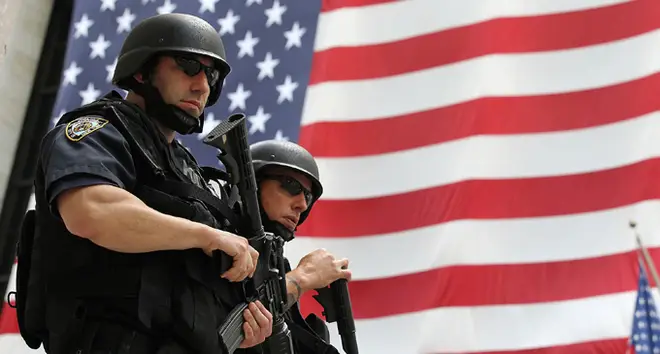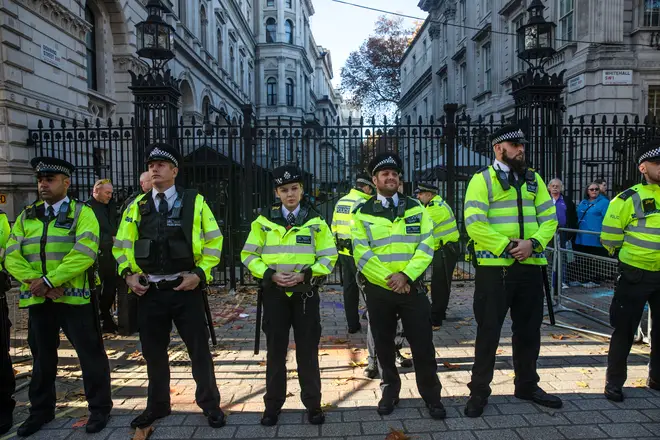On Air Now
The Capital Late Show with Sonny Jay 10pm - 1am
11 June 2020, 16:53

Halsey shares chilling footage of police firing tear gas canisters at Black Lives Matter protestors
The meaning behind the defund the police movement in the US and UK.
The shocking deaths of George Floyd, Breonna Taylor and more have sparked a powerful movement that has seen people around the world protest against the killing of Black people at the hands of the police.
Now activists are rallying round to transform the justice system as we know it and a particular idea is catching steam – defund the police. Whilst it's not a new idea, defunding the police is gaining more support than ever before.
On Sunday (Jun 7), Minneapolis City Council members announced they would be disbanding the city's police department as a result of the protests. That same day, New York mayor Bill De Blasio revealed he would divert funding from the NYPD and into public services. Los Angeles mayor Eric Garcetti also pledged to take $250 million from police budgets and pour it into the community.
READ MORE: Here's how to support Black Lives Matter protesters in the US and UK
It's clear the police system is failing everyone, especially Black people, and the only radical solution would be to abolish or defund the police institution. But what does it mean to defund the police? If we abolish the police force, who will solve serious crimes? Well, let's explain.

Defunding the police doesn't necessarily mean scrapping the police completely (but some actually do want to get rid of the police altogether). It would mean cutting police budgets and channelling the funds into other areas that are often neglected, like mental health, education and youth services.
It’s thought that investing in previously neglected community projects would address problems like homelessness, poverty and mental health, which police often respond to.
Police officers could then be replaced with trained special response teams. That would mean that if someone called the police to deal with a domestic situation, or someone who had an drug overdose, a specially trained social worker would help instead and perhaps provide the support the person needs instead of taking them straight to jail.

The policing structure in the UK differs to that in the US, but it doesn't mean defunding the police in the UK isn't a possibility.
In an interview with Vice, University of Greenwich sociologist Dr. Adam Elliott-Cooper explained how multiple areas within policing could be defunded. Many of those areas cause particular harm to Black and other minority ethnic communities.
"The first should be the end of drugs policing and drugs stop and search," he said. "Stop and search allows officers to question members of the public at random, with BAME people four times more likely than a white person to be stopped."
He called the practice "a very police intensive exercise, does nothing in terms of improving public safety, and requires a huge amount of person power and human hours."
In the same interview, Adam Pugh, an ex-Met police officer, said that abolishing the police in the UK is the only solution.
He added: "The point is that policing isn’t working, and will never work – I say that as somebody who has been a police officer. Reform hasn’t been working for a long time. We now need to move beyond reform and begin to reimagine what our entire justice system might look like, taking steps towards the actualisation of that goal."